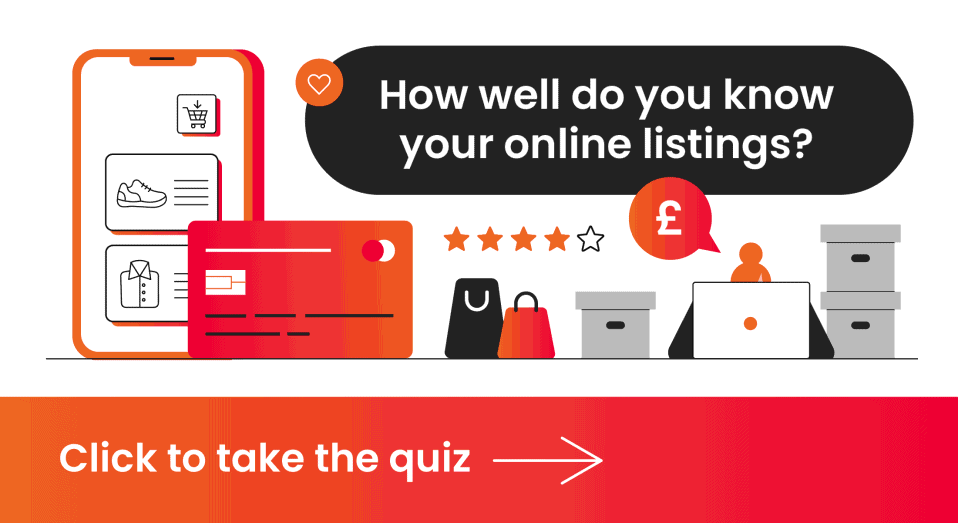Politics
The sneaky techniques online sellers use to get you spending – and most trusted marketplaces revealed

Are you a savvy shopper or a blind buyer? This brain-teasing quiz challenges people to identify the product on sale – but there’s a catch – a keyword has been removed from the item’s description.
It can be surprisingly difficult on popular marketplaces to work out what product you’re actually buying from the online narrative, and this brainteaser has been created with genuinely baffling listing information.
Buying goods online involves risks such as being misled by a product description
It comes after a study of 2,000 adults found a quarter of consumers have received a product that wasn’t the size they were expecting, while one in five have been surprised to receive something entirely different to what they thought they’d bought.
And 25% have bought something online and ended up getting the size or volume completely wrong.
Respondents cited experiences such as ordering a PC but a gaming chair turned up instead, buying clothing and shoes which turned out to be children’s sizes, and purchasing musical instruments where only the keys arrived instead of the whole thing.
An expert from e-commerce marketplace specialists Optimizon, which commissioned the study, said: “Shoppers are often misled by poorly worded listings, which cause untold confusion and damage trust in the marketplace.
read more on shopping
“Sadly, in a few cases the deception is entirely intentional.
“Thankfully the more trusted marketplaces like Amazon, eBay and Wayfair are increasingly encouraging brands to sell directly through their platforms, meaning that shoppers receive a better experience, and more importantly, get exactly what they ordered.”
It also emerged more than a third feel like they’ve been ‘conned’ by misleading pictures, information or products not being authentic.
And respondents have felt duped at least four times when making online buys from online marketplaces such as AliExpress or Wish.
Most read in Money
However, most trust was placed in Amazon, eBay and Etsy – with the same trio the most frequently used platforms.
The main benefits of such marketplaces were cited as being the ability to find better value items, comparing products and the variety on offer.
Of the least trusted sites, the inability to tell the quality of a product, it being difficult to send back and descriptions that are lacking or inaccurate were the main reasons why.
While 37% will decide who to buy from based on trust, money talks according to 48%, who will go to whoever is offering the lowest price.
And more than a quarter would prefer to buy directly from a brand through such platforms.
Improvements users would like to see on online marketplaces included it being easier to return products, more reliable sellers and increased detail in product descriptions.
Despite the peril of purchasing online, four in 10 rate online order deliveries through the post as the highlight of their day – receiving an average of six orders a month.
And a quarter have even cancelled plans in order to wait for an order to arrive, with 24% even taking time off work according to the OnePoll data.
The spokesperson from Amazon agency Optimizon added: “Understandably, price is a huge driver of purchase decisions.
“However, shoppers should pause and think before always jumping at the lowest price.
“Ask yourself, is this a genuine product? Does it have credible reviews? Does the listing contain poor English or spelling mistakes? What’s in the small print, and why is it being sold cheaper than elsewhere?
“If it seems too good to be true, it usually is.
“It’s also worth thinking about where you shop. Be aware of the risks of shopping through less regulated or unknown marketplaces, such as social media sites.
“Trusted marketplaces like Amazon allow genuine brands to create storefronts, enhance their product listings, and tell their brand stories. Brands go through a rigorous verification process to have these features.
“In short, try to use trusted marketplaces and when you find what you are looking for, if the listings look professional and are backed up with positive reviews, you can feel confident about hitting that buy button.”
Most trusted online marketplaces according to respondents:
AmazoneBayEtsyWayfairNotonthehighstreet
Amazon and Argos customers were previously told to watch out after being misled by glowing reviews of poor goods, according to watchdogs.
Read More on The Sun
Plus, we reveal the exact date Klarna will show on your credit report for the first time.
It comes as Buy Now Pay Later schemes are luring customers into money trouble.
We pay for your stories!
Do you have a story for The Sun Online Money team?
Email us at money@the-sun.co.uk

